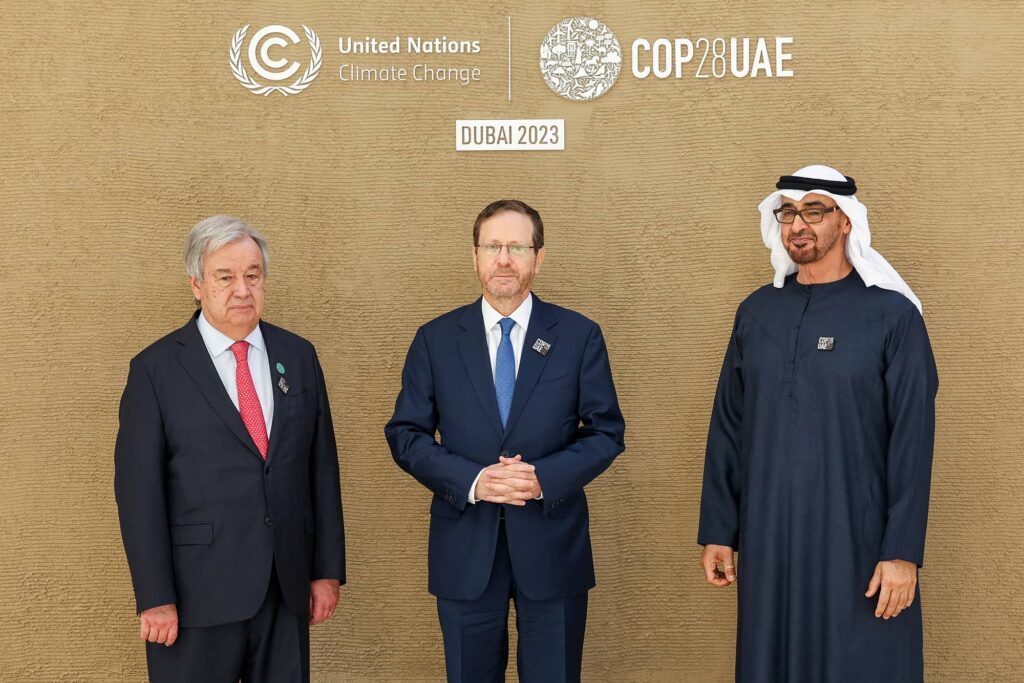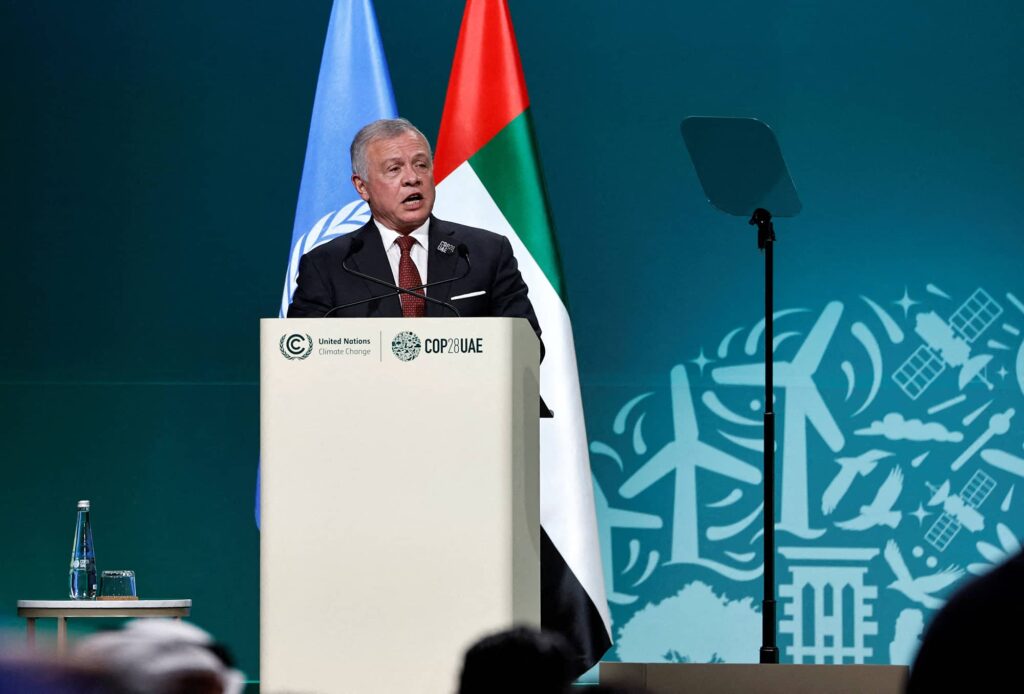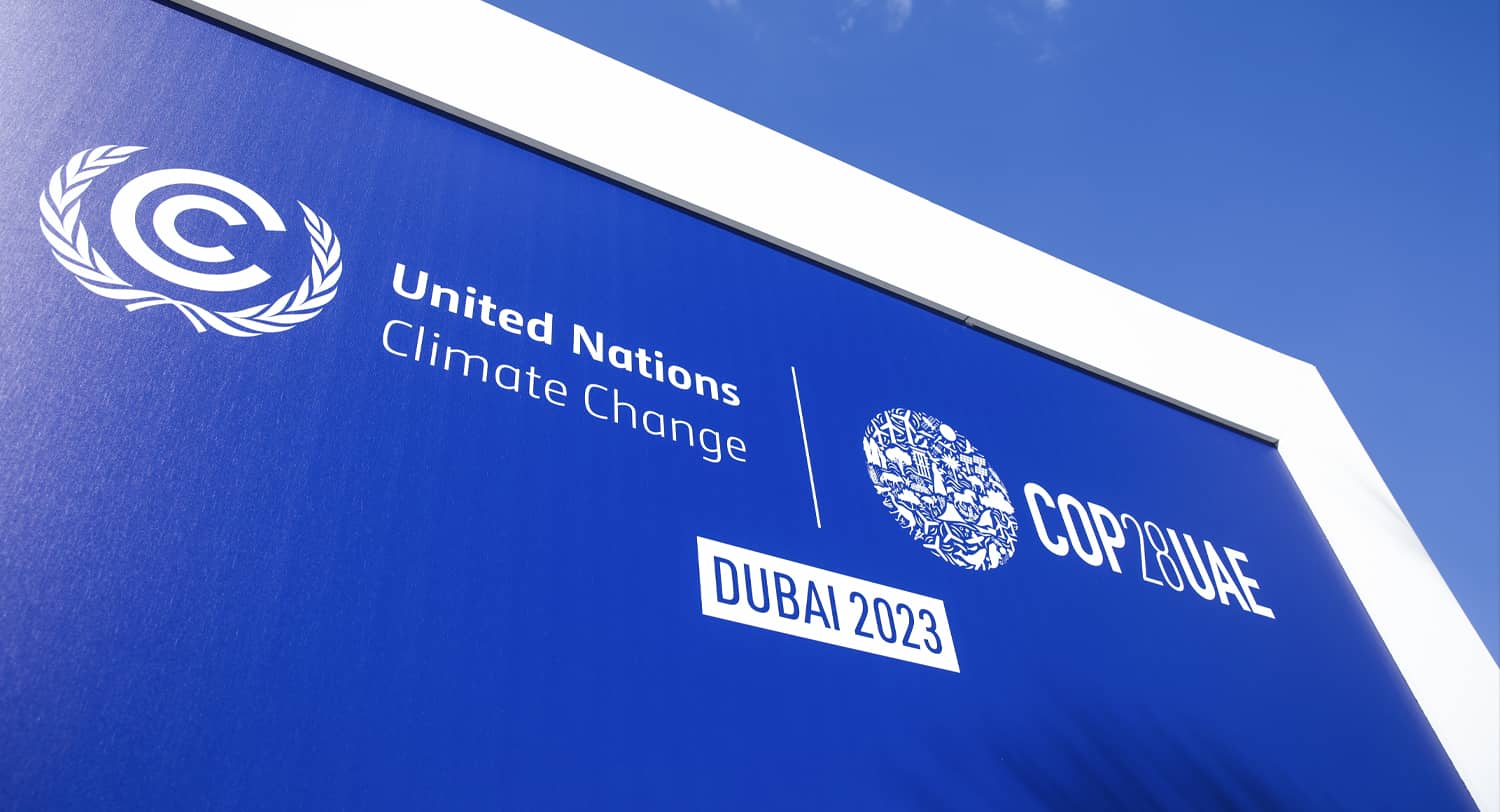The United Nations Climate Change Conference or COP28 held in Dubai in December was going to be the largest summit in history, with over one hundred thousand participants expected. But that is not how it transpired. The turnout was significant, yet regional events negatively influenced attendance. About eighty-five thousand participants and leaders arrived according to the estimates of the United Arab Emirates (UAE), including India’s Prime Minister Modi, British Prime Minister Sunak, French President Macron, and EU President von der Leyen. However, many political leaders canceled owing to the ongoing war in Gaza.
Prior to the conference, the COP had received widespread criticism because its host, the UAE, is an oil powerhouse and appointed the president of its national oil and gas company to be the COP president. The criticism led to a boycott by a long list of environmental bodies and organizations around the globe.
Initially, Israel was planning to send its largest delegation ever to COP28. The mission was reduced, however, to a few mid-level government officials led by President Herzog, along with a few private sector and civil society representatives. President Herzog mainly participated in side meetings related to the Gaza war. In other circumstances, his meetings could have helped to advance regional environmental cooperation and his vision for a “Renewable Middle East.”
The challenges facing Israel and the Levant region are alarming, with 2023 ending as the hottest year in recorded history.
A key feature of COP28 was the global stocktake, which assesses progress that countries are making toward Paris Agreement targets. The assessment concluded that the sum of all commitments made by countries prior to the COP would result in a global average rise in temperature of 3 degrees celsius by the year 2100, double the desired limit set in Paris.
For the Levant and broader Middle East, this scenario could make much of the region unlivable. The Levant is a climate hot spot where temperatures are rising much faster than global averages. Climate models show an increase of up to two times the global average and given the lack of efforts to curb the warming processes, might result in an increase of five degrees in the Middle East, and in the summer months in some areas far higher.
Such an increase would cause longer heat waves with temperatures in many parts of the region climbing above 50 degrees celsius. Periods of droughts (such as the one that influenced the outbreak of the Syrian civil war) would become more frequent, while extreme rain events and a rise of the sea level would threaten cities in the region.
Thus COP28 was a real missed opportunity for the Levant to advance the climate resilience needed and in particular to build on gains made at prior COPs, especially the 2022 COP at Sharm el-Sheikh.

Prior to the Gaza war, several efforts were underway to advance regional climate resilience. In early 2019, the President of Cyprus launched the Eastern Mediterranean and Middle East Climate Change Initiative. Initially focused on technical-level regional cooperation, by the COP in 2022 it saw ministerial-level meetings on climate security that included Cypriot, Israeli, Palestinian, Lebanese, and even Iraqi ministers. In September 2023, the G20 Summit launched the India-Middle East-Europe economic corridor that could support additional climate security projects across the Middle East, including renewable energy interconnectors enabling the Middle East to help power the energy needs of Europe.
The most advanced regional plan remains the Green Blue Deal, proposed by EcoPeace Middle East in 2020. It recognizes potential synergies among Jordan, the Palestinian territories and Israel. Jordan is blessed with a vast desert that can produce renewable energy at competitive prices. But its access to large-scale water desalination is costly, as the Red Sea port of Aqaba is far from the country’s population centers. On the other side of the Jordan River, Israelis and Palestinians are concentrated in a smaller area where large-scale solar projects conflict with political and security priorities. Yet they both enjoy access to the Mediterranean Sea in close proximity to their and Jordan’s population centers. Israel has proven technological capabilities with large-scale desalination.
These synergies resulted in Jordan, Israel, and the UAE signing in 2021 a letter of intent to explore a water-energy exchange. A Memorandum of Understanding was signed at COP27 between Israel and Jordan launching “Project Prosperity” for the sale of water by Israel and renewable energy by Jordan, partially financed by the UAE. A second MoU was signed by Jordan and Israel to rehabilitate the lower Jordan River, thereby advancing the ecological, economic and cultural heritage values of the river. The signing of purchase agreements finalizing Project Prosperity was scheduled to take place in Dubai within the framework of COP28 but was removed from the agenda owing to the Gaza war.

Results of COP28
COP28 did conclude with several noteworthy agreements, even though they do not constitute the steps required to meet the goals of the Paris Agreement of 2015 (which seeks to limit the increase of average global temperatures to no more than one and a half degrees celsius).
While the parties did not commit to a complete phase-out of fossil fuels by 2050, they did call for the first time to complete the transition to renewable energy – or carbon neutral policies – by 2050. Parties agreed to submit their updated climate plans for 2035 by COP30 and that these should be aligned with the limit of 1.5 degree increase, based on the best available science and the outcomes of the 2023 global stocktake.
The COP parties committed to tripling renewable energy capacity and doubling the rate of energy efficiency improvements by 2030.
A fund was agreed upon to compensate developing countries for loss and damage incurred as a result of the climate crisis, to be managed by the World Bank. Prolonged disputes had delayed the creation of the fund in previous COPs. During this COP, $792 million was pledged for the fund. Needs are estimated at $400 million annually.
Water received more attention at this COP. An estimated 90 percent of climate adaptation action is water-related. Freshwater ecosystems, urban water resilience, and water-resilient food systems gained greater attention at this COP through the Global Stocktake and the Global Goal on Adaptation.
While COP28 was not a lost opportunity globally, it did not advance regional climate plans in the Middle East. The hope is that as soon as the Gaza war ends, the Palestinian Authority can be fully incorporated into regional initiatives. Desalinated water produced in Gaza could be sold to Jordan together with that produced by Israel. Multiple renewable energy interconnectors could be sourced for Europe from Israel, Egypt, and Gaza.
Political leadership across the region is now needed to get back on track by COP29 to be held in Azerbaijan in November 2024.



